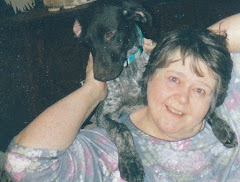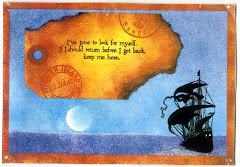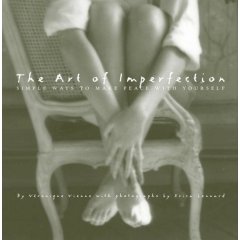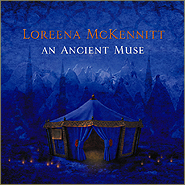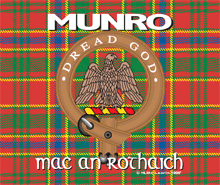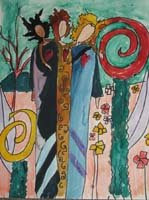William Munro, left, and Jack Munro, right
THE SOLDIER
"If I should die, think only this of me;
That there's some corner of a foreign field
That is for ever Scotland. There shall be
In that rich earth a richer dust concealed;
A dust whom Scotland bore, shaped, made aware,
Gave, once, her flowers to love, her ways to roam,
A body of Scotland's breathing Scottish air,
Washed by the rivers, blest by suns of home.
And think, this heart, all evil shed away,
A pulse in the eternal mind, no less
Gives somewhere back the thoughts by Scotland given;
Her sights and sounds; dreams happy as her day;
And laughter, learnt of friends; and gentleness,
In hearts at peace, under a Scottish heaven."
(With apologies to English Poet Rupert Brooke for changing the poem a bit.)
Long before I knew the story of my two Scottish great uncles who were killed in France in WWI I wept when I first read these lines: "If I should die, think only this of me; That there's some corner of a foreign field/That is for ever England. There shall be/In that rich earth a richer dust concealed.
For me, there are two corners in foreign fields that will be forever Scotland.
William Munro, a sergeant in the Seaforth Highlanders, died Nov. 13, 1916, at the age of 26. He is buried in the British Cemetery at Mailly Wood, France.
His little brother John Alexander (Jack) Munro, a regimental sergeant major in the King's Own Scottish Borderers, died just four months later, on April 12, 1917. He only 24 years old. He is buried at Feuchy Chapel British Cemetery, Waincourt, France.
I don't know exactly where John Alexander died, but William died in the hellish battle that became known as Beaumont Hamel. A fellow member of the Fifth Seaforth Highlanders wrote this poem about Beaumont Hamel:
"In the cold of the morning
A grey mist was drawn
Over the waves
That went up in the dawn
Went up like the waves
Of the wild Northern Sea
For the North has arisen
The North has broke free
Ghosts of the heroes
That died in the Wood
Looked on the killing
And saw it was good
Far over the hillsides
They saw in their dream
The kilten men charging
The bayonets gleam."
From the Diary of The Fifth Seaforths by Lt. E. A. Mackintosh
A memorial to the 5th Seaforth Highlanders
at Beaumont Hamel
William's Gravestone
Twilight at Feuchy Chapel, where Jack is buried.
Jack's Headstone. MC means
Military Cross. It was awarded to
Jack posthumously, for conspicuous gallantry
William's Dead Man's Penny
It was decided during World War One that all next of kin of service personnel who lost their lives as a result of the war would be presented with a memorial plaque and commemorative scroll from the King and country. The plaques were cast in bronze and were approximately five inches in diameter. On the plaque itself no rank was recorded as the intention was to show equality in their sacrifice. The troops referred to them as "The Dead Man's Penny".
The stories of William and Jack, and their older brother Archie, who was gassed and taken prisoner at the first battle of Ypres in April 1915, are here: http://celticanamcara.blogspot.com/2009/11/lest-we-forget.html
Photos of the French graves and cemeteries, and the Dead Man's Penny are courtesy of my second cousin, Shirley Sutherland of Golspie Scotland. She also helped design the e-greeting card shown at the top of this post.
I hope someday to be able to follow Shirley's footsteps and visit these cemeteries. Until then, today, Memorial Day, I salute William, Jack and Archie. (Archie - barely - survived the war, was repatriated and returned home. However, he lived only until 1920, his death directly attributable to the grievous damage to his lungs.)
~~~~~~~~~~~~~~~~~~~~~~~~~~~~~~~~~~~~~~~~~~~~~~~~~
Rupert Brooke, who wrote "The Soldier", died of sepsis on April 23, 1915 on a French hospital ship on his way to what became known as the Battle at Gallipoli. He was buried in yet another corner of a foreign field, in an olive grove on Skyros, Greece. He had not yet experienced battle.
~~~~~~~~~~~~~~~~~~~~~~~~~~~~~~~~~~~~~~~~~~~~~~~~~~
NOTE: Comment added by Cousin Shirl on 6/1: John Alex died during the Battle of Arras which began on 9 April 1917 - The following is a paragraph from the book - A Border Battalion, The 7/8th King's Own Scottish Borderers - "Sergeant-major Munro, after carrying away Private Morrison, who had been wounded, was mortally wounded when returning to Battalion Headquarters with the Signalling Officer, Lieut. Reay".

























